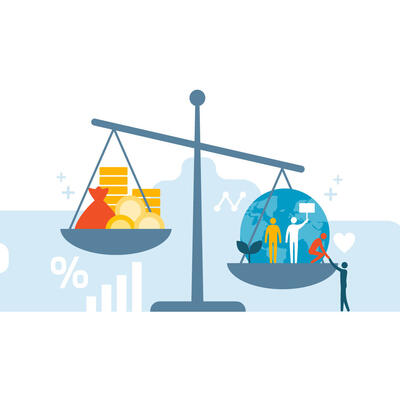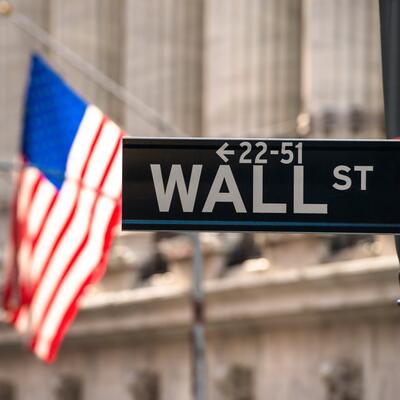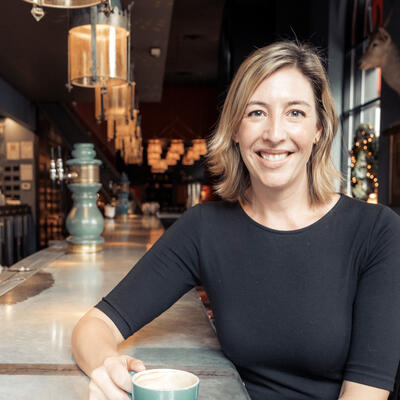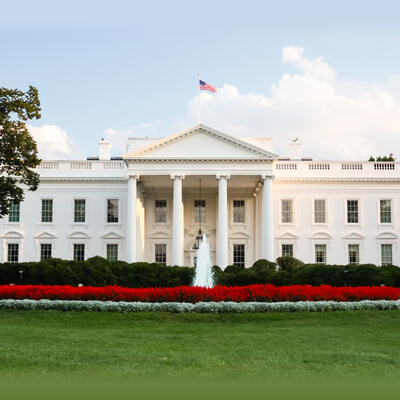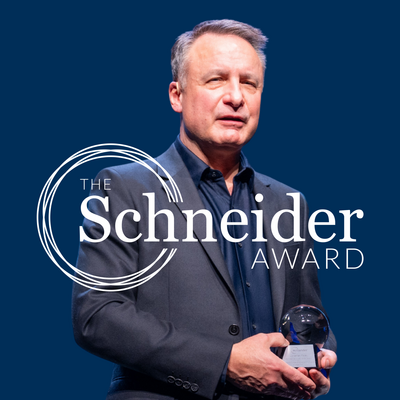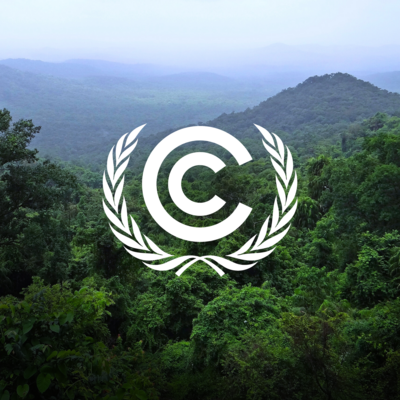
REWIND: Reimagining Capitalism / Fossil Fuels in Your Portfolio
Guests
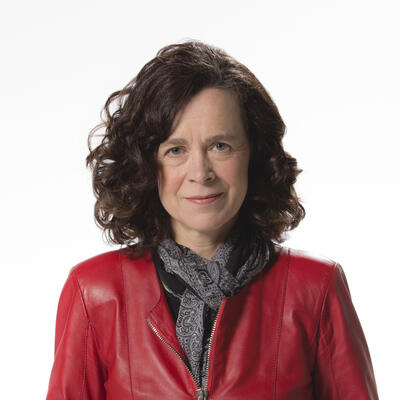
Rebecca Henderson
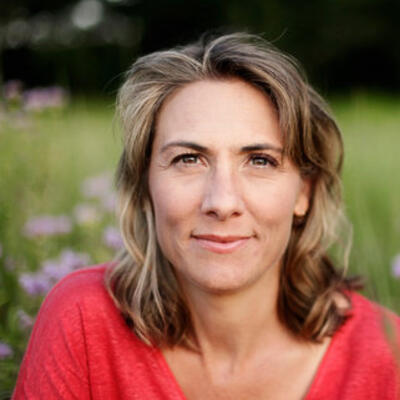
Hope Jahren
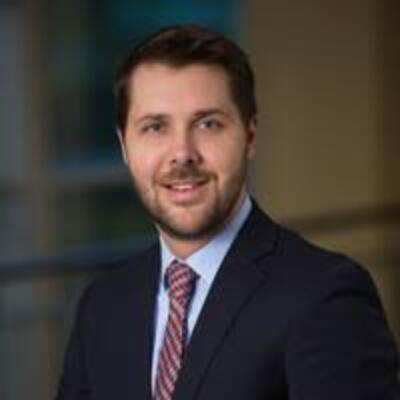
Brian Deese
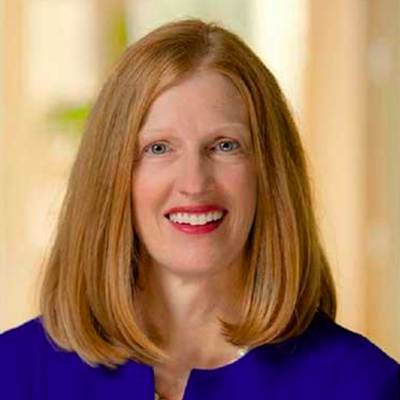
Lori Keith
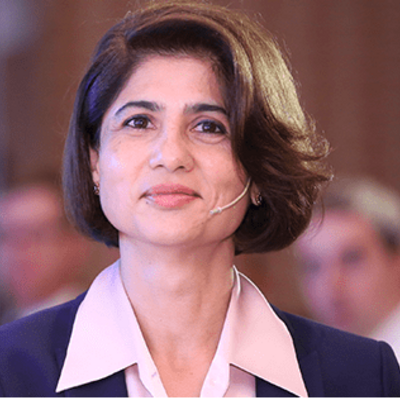
Pratima Rangarajan
Summary
With inequality booming and climate change looming, is it time to rethink capitalism?
“We've come to the point where making more stuff in order to sell more stuff in order to make more money is breaking down,” says Hope Jahren, Professor of Geosciences at the University of Oslo.
In her book, "The Story of More: How We Got to Climate Change and Where to Go from Here," Jahren questions whether a healthy climate can coexist with a consumption-driven economy. Rebecca Henderson from the Harvard Business School is more sanguine about the prospects for addressing climate in a capitalist economy
“We have a pricing and regulatory problem,” she says, adding that “we’re not charging the full cost of economic activity.” Henderson is the author of Reimagining Capitalism in a World on Fire and believes capitalism can be harnessed to better serve society as a whole.
“It’s fairly clear to see how to fix it,” she says. “The only thing it requires is a massive cultural and political movement changing the rules that constrain capitalism – but as soon as we can do that, we’re done.”
But short of that massive movement, can the stock market be used as a tool for climate action?
“Climate risk is investment risk,” says Brian Deese is Global Head of Sustainable Investing at BlackRock, the world's largest asset manager, “I believe that we are going to see key elements of sustainability rise in importance for companies and for governments and regulators.”
But when institutional investors divest from fossil fuel companies, does it make a difference, or is the impact merely symbolic? Some say it’s better to keep your stock and your influence, using investor dollars to encourage change from within.
“That’s what we do in our business; we follow the carbon,” says Pratima Rangarajan, who left her job in the renewable energy industry to head up the Oil and Gas Climate Initiative, an investment fund backed by some of the world's largest oil companies including BP, Chevron, and ExxonMobil.
“Where there’s carbon it’s our job to figure out to go invest in solutions to mitigate it and then figure out how to scale it up.”
Related Links:
Reimagining Capitalism in a World on Fire
The Story of More: How We Got to Climate Change and Where to Go from Here
FossilFreeFunds.org
The Investor Agenda
Parnassus Investments
Oil and Gas Climate Initiative
Full Transcript
Greg Dalton: This is Climate One. I’m Greg Dalton. [pause] Universities, churches, pension funds and other organizations are divesting from fossil fuels and investing in cleaner energy. But sustainable investment alone won’t stop carbon pollution.
Anne Simpson: Simply by having a green, clean portfolio isn’t going to help us with this risk unless we actually get the real economy into a green, clean economy.
Greg Dalton: Maintaining a consumption-driven economy while keeping emissions down seems more and more like a pipe dream.
Hope Jahren: We burn fuel to grow corn, to turn it into fuel to fuel automobiles. It’s like an environmental Mobius strip
Greg Dalton: Is it time to re-think capitalism altogether?
Rebecca Henderson: The only thing it requires is a massive cultural and political movement changing the rules that constrain capitalism. But as soon as we can do that we’re done.
Greg Dalton: Reimagining Capitalism without Fossil Fuels. Up next on Climate One.
---
Greg Dalton: How can we use our investment portfolios and (our) purses to promote the values we care about? Climate Climate One conversations feature all aspects of the climate emergency: the individual and the systemic, the exciting and the scary. I’m Greg Dalton.
Greg Dalton: When institutional investors divest from fossil fuel companies, does it make a difference, or is the impact merely symbolic? Some say it’s better to keep your stock and your influence, using investor dollars to encourage change from within.
Pratima Rangarajan: That’s what we do in our business; we follow the carbon. Where there’s carbon it’s our job to figure out to go invest in solutions to mitigate it and then figure out how to scale it up.
Greg Dalton: Pratima Rangarajan [PRAH-tee-mah ran-GAHR-ah-jahn] is CEO of the Oil and Gas Climate Initiative, an investment fund backed by some of the world's largest oil companies including BP, Chevron, and ExxonMobil. She and others (with a fiduciary responsibility for managing other people's money) will join us in the second part of today’s show to talk about sustainable investing. First… With inequality booming and climate change looming, is a green stock portfolio really part of the solution, or do we need a whole new kind of capitalism?
Hope Jahren: We've come to the point where making more stuff in order to sell more stuff in order to make more money is breaking down.
Greg Dalton: That’s Hope Jahren, a professor in the Department of Geoscience at the University of Oslo, and author of The Story of More: How We Got to Climate Change and Where to Go from Here. She joins us in the first part of the show along with Rebecca Henderson, Professor at the Harvard Business School and author of Reimagining Capitalism in a World on Fire, to explore how fighting climate change often involves grappling with issues of wealth, power, and patriarchy. Our conversation begins with Rebecca describing some fundamental flaws in capitalism, as we know it.
Rebecca Henderson: We have a pricing and regulatory problem. We’re not charging the full cost of economic activity. I don’t think of capitalism as a system for producing more. I think about it as a system for producing efficient things. It make sure that the right people do the right things at the right time. And when it’s working well, it’s just fantastic. I don’t think we’re gonna solve the problems we face without capitalism. But we have to have real prices and real regulation. So let’s just take beef for example. The production of beef is responsible for a very significant fraction of agricultural emissions and takes up an enormous amount of the planet’s land. And so every time we eat a hamburger, we’re in effect causing very significant harm because we are personally participating in warming the planet. And yet, beef is super cheap we’re not paying for the harm that we’re causing. And so, every kind of light in the system says, more beef, more beef, more beef, because it’s cheap and people love it. And so, we need as a society to be able to say, you know, beef is amazing but it should be rare, it should be special, it should be offset and beef should be expensive. And so we will fix this. In fact, it’s fairly clear to see how to fix it. The only thing it requires is a massive cultural and political movement changing the rules that constrain capitalism. But as soon as we can do that we’re done. We know how to fix this problem.
Greg Dalton: Rebecca, you're quite optimistic and you point out in your book a lot of examples of companies acting in kind of enlightened self-interest and insight leaders that are doing things. Kind of on the margins, you know, the Patagonias of the world the Paul Polmans the Unilevers of the world. But companies are also doing one thing and in their very slick communications when it comes to policy they play a double game. They speak about climate change in public, but their lobbyists and their firms in Washington DC do either don't push on climate policy or they actively try to slow it down. They support the Paris climate accord, yes, they tweet about Trump backing out of Paris, etc. but they don't really put a lot of muscle or effort into climate policy where it matters inside the beltway. They’re much more concerned with taxes, immigration, those sorts of things. They’re afraid of alienating the other side. So I’d like you respond to that double game that I think companies play. Even some of the most sincere chief executives don't really leaning on policy in places where in the dark halls of power.
Rebecca Henderson: I think it's super important to differentiate between different companies. There are some companies that are behaving really badly indeed. They are funding massive public relations campaign saying we can keep running fossil fuels it’s the future, it's gonna be great and at the same time they are pumping hundreds of millions of dollars into modern day forms of climate denialism and into politics in ways that have been totally disruptive. I think there are some firms that are trying to behave better. And, yes, they’re doing things inside their own operations. So, sorry, I wanted to tell a good story. So I'm good friends with Hugh Welsh who runs the U.S. operation of a chemical company called DSM. And he is very active in introducing innovations like Clean Cow. Which is a pill you give to cows to stop them farting as often. It turns out that cow farting and cow belching is a huge source of methane. And so it’d be really good to reduce that. So DSM is funding a number of projects like that. They are very sustainably oriented they talk about it in public. And one of the things that Hugh has been doing is working with the chamber of commerce to change the chamber’s position on climate change. So there are firms that are acting consistently. Unilever for example, is absolutely front and center in pushing for change in climate policy. If you think of the alliance called We Are Still In that’s working with governors and states right across the U.S. They succeed in working in partnership with governors and local NGOs in putting in place commitments that will get the U.S. to within shouting distance of the Paris agreement. So there are firms out there that are trying. Are there firms that are saying all kinds of good things and doing bad things? Yes. Are there firms that will say they care about climate but not advocating for it? Yes. Do we have to change them? Absolutely. But I think it’s a mistake to tell all of business with the same brush.
Greg Dalton: One of the things that underlies some of that is the concentration of power. Because we have, and Rebecca you write about how the top, was it top 40 people in the world control as much wealth as the bottom 50% which is, how is that not shameful in any system that produces that amount of concentration of wealth and power. And Hope Jahren, you write about GMOs are safe for humans to eat, but farmers are forced to buy seeds from near monopolies Monsanto and DuPont. So I'd like to hear Hope talk about that concentration of power which you write about in Iowa how the small farms have gotten smaller and the huge farms have gotten huger. And we have this disparity of power that underlies all of this, Hope.
Hope Jahren: Yeah, I mean there's also a fundamental question here in the changing nature of human labor, right. So there were folks that were very concerned with population increase in the 70s and how was the earth gonna feed all these people. And a tremendous amount of research was done on plants and animals. And it resulted in a whole new set of brave new world, all new consortium of creatures really. I mean farming just doesn't take us many people because you know to get a bushel of corn you used to have to plant a basketball sized court. And now you can get it out at about a parking space. Pigs used to have five piglets a year. Now, mother pigs have 10 piglets a year twice a year, right. And so the amount of food that we can create per unit labor has just skyrocketed. And so that labor has been consolidated using you know, industrial --
Greg Dalton: Fossil fuel driven industrialization.
Hope Jahren: Yeah, I mean enhanced technology and enhanced yield, wildly enhance yield. Which is always been done through breeding, is changing the amount of labor that's needed to produce way too much food, right. And so also the seed folks are just a few people producing all of these food. But at the end of the day, we have to ask questions about, you know, is it right to have the entire country food supply concentrated into the hands and pockets of a few people to sell and withhold as they see fit, right. So by mass producing all these and way too much, you know, I mean, corn is the great example. We can’t find way, we turn it into sugar and squirt it all over everything. We can’t even cram it down our mouths fast enough, we’re having to turn it into fuel. We burn fuel to plant corn to grow corn, to turn it into fuel to fuel automobiles. It’s like an environmental Mobius strip. I mean we’re doing crazy things at this point just because we can produce so much food and we’re desperate to do something with it besides feed truly hungry people.
Greg Dalton: Rebecca your thoughts on addressing that the concentration of power in capitalism in corporate America right now that has essentially kind of taken over the government. Who’s gonna tackle that concentration of power and are we gonna solve climate because climate challenges, presents cost to some of that very concentrated power.
Rebecca Henderson: I don’t think we’re gonna solve climate change until we address the concentration of economic power. And that means both addressing inequality and changing the rules of the game. I'm sure we need to get political. I talk a bunch about genuinely free and fair capitalism. And free and fair capitalism means you compete hard against other firms. It means you don’t go to Washington and change the rules such that there just a few of you in control fixing the prices and we have increasing evidence pushing down wages. That the one of the reasons inequality has increased is because economic power has become so much more concentrated. So labor has to work for a few, you know, people have to work for one of a few firms. And at the same time that concentrated economic power is pushing back against moves like raising the minimum wage or may I get topical, guaranteed sick leave or comprehensive healthcare. I mean these moves that would really help the poorer 50% of the population that actively resisted by this concentrated power. And I think we have to fix inequality because without it we won’t generate the political momentum to address climate change and because we should fix it for its own sake let me say. And we have to fix politics. So one of the things I find myself saying a lot and I know how crazy this sounds, is the business should get actively involved in remaking of political institutions. In making democracy much more ground-level much more responsive and please in pulling money out of politics. So I think business is going to suffer immensely from the current situation and that the smart thing to do is realize that. And so okay, let’s pull the money out let’s pull ourselves out. Let’s put the government, a partnership between government and business at the heart of our society in the service of the whole society.
---
Greg Dalton: You’re listening to a Climate One conversation about Reimagining Capitalism. Coming up, challenging some deeply held beliefs about the role of markets.
Hope Jahren: Every idea is on the table. It doesn't matter how crazy something sounds, you can always get somebody who will sit down and talk about how to scale that up to the point where it changes the world.
Greg Dalton: That’s up next, when Climate One continues.
---
Greg Dalton: This is Climate One. I’m Greg Dalton, and we’re talking about Capitalism and the climate crisis with Hope Jahren, Professor at the University of Oslo and author of The Story of More; and Rebecca Henderson, Professor at the Harvard Business School and author of Reimagining Capitalism in a World on Fire. Hope and Rebecca both write about the gender barriers they encountered in their careers in science and business. Oceanographer Sylvia Earle broke the glass ceiling in science in 1970. She joined other scientists living undersea for up to 60 days. This clip from the documentary Mission Blue shows how the first group of female aquanauts was portrayed.
[BEGIN CLIP]
Male Speaker: Now a team of divers will attempt to live for two weeks as quiet residents on the seafloor. Ironically, these aquanauts are not men with extraordinary physical endurance and stamina, but five young and attractive women. The world’s first real-life mermaids. Their leader is a renowned scientist, Dr. Sylvia Earle, a marine botanist and an experienced diver.
[END CLIP)
Greg Dalton: That's a clip from 1970 talking about Sylvia Earle's and other female scientists breaking into the world of bearded men scientists. Hope Jahren, 50 years ago I know you’ve encountered some of that. We’re told at one point you’re prevented from entering your lab I think because you are pregnant. So how far have we come in that 50 years since that was recorded?
Hope Jahren: I think the problems in science in terms of sexism are part and parcel with the basic challenges of walking through the world wearing a woman's body. I mean I think the, you know, feminist theory brings us back to violence against women, reproductive rights and equal pay for equal work. And those are the three core issues that we struggle with in every profession in every field of life in every theater of being. And academia has problems around each of those. You know, we have harm, violence, rape, murder in academia and in science, right. We have problems being paid equally for equal labor and we also have tremendous awkwardness at the very least, and discrimination associated with women invoking their fertility and having children taking care of children, etc. And so, yes, I think those things are with us. They find a different expression culturally as we move through time. But I feel that this is our piece of the struggle. What I've never understood is why people are surprised to find that these truisms that are so core to surviving as a woman also have their expression within academia and within science per se.
Greg Dalton: Rebecca Henderson, you write about giving presentations in the highest heels you can imagine. And sometimes you get concerned if you start talking about values or purpose they’ll write you off as a simpering female. What’s been your experience in the business world and business education?
Rebecca Henderson: This is very controversial. But I think it's sometimes useful to think about men's way of looking at the world versus women’s way at looking at the world. And it’s controversial because of course men are very different and women are very different. So I’m talking about a central tendency a particular expression of masculinity, which I think one sees in the business world. That life is about competition, life is about the individual, life is about aggression and that that’s what we strive for. And life is also about rational force about managing the numbers about showing that you’re smart. And, as I said, I don’t need to say that that’s like men and this is like women. But that central tendency that way of being in the world has become very dominant in the business community. And in my own career, I thought it was necessary to learn that language and to be able to really participate in that conversation. And it’s one of the reasons I have an undergraduate degree in engineering and a PhD in economics. I wanted that to be absolutely no doubt that I could handle the numbers understand the bottom line compete as hard as any of the rest of them. And I still find now when my research is more than ever focused on questions of, you know, what we sometimes call mushy stuff, this drives me crazy as if that is an emotions were somehow not real or not important. When in reality, as we know now from the modern psychological research, most people are driven most of the time by their emotions and their values. And all the rational stuff we come up with is our forebrain making up excuses for what the subconscious is just cruising through. So yes, this has been a real tension in my life in the last 10, 15 years. It’s one sort of story I sometimes tell to illustrate it. So I teach students about climate change and the day it just represents and I often say, but there’s a business case as business people we can make money by developing solutions to this problem and that's really important. And again I’m generalizing horribly but many of the men will come up to me and say,, “Rebecca tell me more about that business case. I want to be really certain.” And far more of the women come up and say, wait, we are destroying the planet in the service of our bottomline. How do we stop doing that? And again it’s a generalization but that is the tension in our society that I think we all have to live inside.
Greg Dalton: Hope Jahren, I've learned from some climate justice activists about how racism patriarchy are really at the root. That a lot of the conversations I've had about changing this technology changing this policy don't get to that deeper root. And they would say that getting back to more communal community-based nurturing system away from patriarchy is essential for really solving climate. What do you think?
Hope Jahren: Well, what I run into the most is when I talk to people about overpopulation. And I've had a number of men really come up to me and with seemingly like some pretty severe neurosis about these uncontrollable women everywhere having baby after baby. And the planet is doubling and doubling beyond control. I looked into it and people have been freaking out about overpopulation basically since they were able to count each other. There’s all these writings from Mesopotamia talking about, you know, can the earth handle all these people occurring. One thing that and I did a lot of research on my last book The Story of More. And the one thing that we can see with lowered birthrates is that when the gender gap closes. That means when opportunity economic opportunity health outcomes and also political participation is close between men and women within the society, then the number of children born within a woman's lifetime is low. Low at replacement level or even lower than that. And that doesn't just apply to rich countries. It doesn't mean that there's an awful lot of opportunity there. It just means that men and women are sharing any amount of opportunity and justice and fairness there. And that is where we have the lowest number of births per woman's lifetime. So I would say that the only surefire way we can reduce population growth is to close the gender gap. And if that isn’t fundamental to reversing or slowing down the damage to the earth, I can't think of another example more tightly correlated to patriarchal inequality than that.
---
Greg Dalton: Rebecca Henderson, Professor at the Harvard Business School and author of Reimagining Capitalism in a World on Fire. We also heard from Hope Jahren, Professor in the Department of Geoscience at the University of Oslo. You’re listening to Climate One. I’m Greg Dalton. Short of rebuilding capitalism from the ground up, can the stock market be used as a tool for climate action?
Brian Deese: Climate risk is investment risk, and I believe that we are going to see key elements of sustainability rise in importance for companies and for governments and regulators.
Greg Dalton: Brian Deese is Global Head of Sustainable Investing at BlackRock, the world's largest asset manager. A former aide to President Barack Obama, Deese was recently tapped to lead President-elect Joe Biden’s National Economic Council. In this conversation recorded before that appointment, He’s joined by Lori Keith, a Portfolio Manager with Parnassus Investments, a leader in the field of socially responsible investing, or SRIs. And Pratima Rangarajan [PRAH-tee-mah ran-GAHR-ah-jahn], CEO of the Oil and Gas Climate Initiative, an investment fund backed by some of the world's largest oil companies including BP, Chevron, and ExxonMobil. Pratima spent more than 10 years in the renewable energy business. She explains why she went to go work for an investment fund run by the largest oil companies in the world.
Pratima Rangarajan: A few years ago I decided to just work on climate directly. And so I started studying the data on carbon emissions. And I took home two important learnings. At that time we had less than two decades just like we have now in our carbon budget to stay under 2 degrees. And with renewables at less than 10% of the energy mix it just seemed to me that we didn't have enough time to scale renewables to cover the rest of the 90% not to mention the growth. So we have to work on the rest of 90%, you know. As I told my kids, I have to stop working the chocolate chips and go work on the cookies as well. The second realization I came to is that there are substantial sources of carbon that are emitted in this world that are not about energy. And here I can just take cement as an example we all know and love. It’s responsible for about 7 billion tons of carbon dioxide every year. It would be the third largest country if it was a country. And less than half of cement emissions come from the energy piece of cement. The rest of it is really chemistry because we take carbon emissions material and make it into cement. So it actually just emits carbon dioxide. So when you look at both of those, I realized that I was really working on a small-piece of the pie. I wanted to work on the overall climate challenge which is the carbon challenge. So one of the pleasures of my job is that I can just look this from the lens of following the carbon. That’s what we do in our business we follow the carbon. Where there’s carbon it’s our job to figure out to go invest in solutions to mitigate it and then figure out how to scale it up. So I’m following the carbon, Greg.
Greg Dalton: Brian Deese, BlackRock is the largest investment manager in the world. Also mainly an index house where you buy indices that are constructed by other companies. You think that divestment is simplistic it's the wrong frame, you know, maybe a bad title for this conversation and get your challenge on divestment. It’s too simplistic, too binary. What’s wrong with divestment?
Brian Deese: The first is that I think we come at this from the perspective of risk. And investment risk in trying to fully understand and reflect the risks that we’re all talking about here into investment processes. We did announce earlier this year that on our active portfolios, which means the portfolios where we have discretion when we’re managing our client's assets, we did announce that on that portion of where we have discretion we would be exiting all of our exposures to thermal coal producers because that was an area where we identified the risk the business model risk itself is pronounced toward that. But as we look more broadly and we look at these risks, I would make two points. One is, we’re very focused on this issue of transition in two respects. The first is, trying to understand which companies and which business models today are the most well-prepared to actually navigate effectively and in fact effectively take advantage of what we believe will be an accelerated transition toward a low carbon economy. And if you take that perspective, what it allows you to do is not look for example at the entire energy sector or all companies that are involved in traditional energy and look at them sort of monolithically. But instead say, some of those companies are making significant changes to their business model. Taking a lot of their current R&D and cap ex and investigating in different ways, and some of them are. And from a risk perspective, investment perspective those difference is really important when you’re trying to think about which companies were actually best positioned in the future. And we use that not only in terms of allocating risk capital but also engaging with companies. Where we own equity on those companies on behalf of our clients and that is connected to the work of Climate Action 100 that we are now supportive of and partnering. The last point I would make though that is connected with transition is that ultimately, the pace of the global low carbon transition will be dictated by the ambition and the effectiveness of government policy globally. And as somebody who spent a lot of time working to and getting the Paris agreement agreed to and then entered into force in 2015, 2016, I think you look at that framework and you see in it the potential for countries to increasingly increase the ambition of their national policies, their nationally determined commitments in a way that would signal long term trajectory of how the economy will decarbonize that would then accelerate massive transformations of capital and shifting of private capital. Obviously the state of global policy is not where it needs to be. I think that we will see an acceleration but the more that that ends up happening too late and in an uncoordinated way that doesn’t provide those long-term signals. But more challenging it’s going to be for capital to actually move and accelerate this process.
Greg Dalton: Pratima, I wanna ask you the whole divestment conversation focuses on publicly traded oil companies, people who know the markets deeply. Most of the hydrocarbon reserves are actually held by state owned oil companies that shareholders divestment can’t get at, China, Saudi Arabia, etc. So actually you have a window into that world because a couple of state owned or semi-state owned oil companies for Brazil and China are involved in your work. So tell us what window you have into the big part of the oil market that is not talked about in this whole divestment conversation.
Pratima Rangarajan: That’s actually right, Greg. I think divestment has done a good job in raising public awareness about climate challenge and that is important. But in terms of actual climate impact we don't really see it on the emissions. And that’s because it's not really effective, divestment isn’t such an effective tool where other forms of investment or other forms of capital are available. It’s not a great tool when you think about nationally driven, as you said, oil companies which is where a lot of this is. And it looks at all fossil fuels as the same, whereas if you really when we need to solve real problems, we have to be contextual. And we have to look at what is countries what regions are capable of and what they need as well. A one-size-fits-all approach is great on paper. But in reality, one cannot use the same approach in Europe and in Africa. In Africa 57% of the population doesn’t even have access to basic forms of energy. It just isn’t the same story. And as Brian said we cannot forget people in this. It has to be equitable and a just transition. It cannot just be financial. So, if you look for something that’s really a much stronger potent tool in getting to the core -- in answering the climate charge, I absolutely agree with Brian, it is policy. Policy can drive us to scale a lot faster and we can actually hit the carbon challenge in the timeframe we have. And the first thing there is to put a value on carbon. Two centuries of economic history tell us that we will not change behaviors unless we value what we are talking about and we need a value on carbon. That’s just plain and simple. And we need to put all our political will behind this so all our economic and political. From an investor viewpoint, I think it is much more effective to do what Brian was talking about. Which is work with the companies, work with entities, work with regions. To reward companies that are ahead of the curve. And that’s really important. We’re seeing with divestment a regime is that there are some real regions of need where we have to take a much more nuanced view. And so we’re making no progress into making substantive progress. Because all-or-nothing is not a very good option everywhere.
---
Greg Dalton: You’re listening to a Climate One conversation about using our investment portfolios for change. Coming up -- when it comes to socially responsible investing, let the buyer beware.
Lori Keith: There are a lot of firms that will say check the box, say we’re doing environmental social governance investing. But when you look behind the scenes and see what companies they’re investing in, most of those wouldn’t even meet the standards.
Greg Dalton: That’s up next, when Climate One continues.
---
Greg Dalton: This is Climate One. I’m Greg Dalton. We’re talking about investing for change with Pratima Rangarajan of the Oil and Gas Climate Initiative, Brian Deese of BlackRock, and Lori Keith of Parnassus Investments. This conversation was recorded with a live online audience earlier this year. As oil companies talk about moving into renewables, I get to thinking of the hokey-pokey -- they put one their one toe in, they pull their one toe out. It mostly seems like greenwashing and marketing. So are fossil fuel companies making real investments in cleaner energy, as a percentage of their overall capital expenditures (or cap ex)? Lori Keith explains.
Lori Keith: As investors certainly in the mid-cap space those finances mid-cap we’re not seeing that certainly across, you know, many of the shale independence in North America. We’re not seeing any movement towards renewables at this point. All of the capital expenditures are really going back into the ground to try to enhance recoveries in those existing shale wells or for additional acquisitions. And so we think there has yet to be an appetite to really shift away from fossil fuel and shale development by many of the players. Certainly there are one offs internationally and some of the very large players that are starting that route. But we think it’s gonna be a long road, frankly. And in the meantime we think there’s gonna be significant risk to many of the players particularly when we’re looking at commodity prices today, you know, certainly $20 per barrel on the West Texas intermediate today's price. At that level certainly, yeah, the Kansas City put out a projection that 40% of energy companies in North America potentially will be bankrupt within one year at this commodity price. Many of those being smaller players but we think yeah there’s very significant risk. And so as an ambassador you’re really having to bet on an increase in commodity price for these stocks to work and the economics simply aren’t there.
Greg Dalton: Pratima, Lori Keith talked about the mid-range companies. You deal with like the super majors, the global giants. We have a question from Lala on YouTube. “Will the oil and gas companies invest more or less in clean tech in 20 and ’21?” So what are you seeing I understand your fund is separate from the companies they all put some money in, it’s a separate entity. But does that trickle into larger investments by the oil and gas companies in some of the clean technologies that they might discover in your fund or learn about?
Pratima Rangarajan: Yeah, absolutely. So two points. One is that the money they put in our company is separate from what they already do. So if we look at Equinor they do offshore wind. Everyone of the companies has their own portfolio of clean technologies.
Greg Dalton: But to be fair, it’s a small part of their overall expenditure, right. I mean it’s 1%, 2% of what they spent.
Pratima Rangarajan: It is a small part but, you know, when you look at what it actually takes the cap ex that takes to go drilling for oil is not the same cap ex when you set up a wind farm. And I come from the wind side of the base, and so we just don’t run so cap ex which in general. And I think you’re gonna see the changes you’re gonna see the changes in the business models because that’s what we need. The world is gonna need it, COVID is going to, I think in some ways increase the pace because we’re going to have recovery plans. And it’s always good and sometimes crisis makes you look at things very differently. We’re not gonna come back to the same place. But in terms of our fund, the billion plus dollars that we have in our fund, obviously I commend the companies to give us that as an investment capital. But in addition to being investment capital, they also co-invest with us in some of our investments. They actually, but most importantly they are collaborators. They take our innovations they pilot them, they test them and they are actually deploying them at scale right now. So that’s really important because we need to shorten the time for commercialization, time for impact. And then when we also take on some difficult projects that’s when they become really, really important partners for us. They take it over from us. So in the U.K. we have a carbon capture utilization storage project. It’s very ambitious, C-I grew it over the last three years. And the goal is to decarbonize the entire northeast of England. And this project grew out of our capabilities as a small investment fund. And has now being taken on by five of our member courtesy of member conference. And they are going to take it out to operationalize. Now this is not a typical type of project and this is really important for couple reasons. One, it’s not a typical project that they would normally invest in. They’re doing this in order to demonstrate that we can decarbonize industrials across an entire region. When they do this, what’s the most important thing is that they will be able to transition the technologies the resources the knowledge they have into the industrial sector and allow for the decarbonization of the neighboring sector. So these are all the ways we work with them. So yes, the impact is much broader than what we do as a fund. We’re just the catalyst.
Greg Dalton: We have some questions from our listeners, from John Murphy on YouTube. “I want to invest sustainably, but I'm overwhelmed by the enormity of Googling green investing or sustainable mutual funds. Can someone please suggest information sources for individual investors.” Lori Keith, where should a person who wants to go green look for investment information?
Lori Keith: First of all I would suggest really looking at the spectrum of what the offerings are. Certainly going directly to websites offered by individual mutual funds as an example, you can really get a sense what is it that they own. Because I think it’s really important as an investor to understand what are those companies that are truly being invested in, how are they disclosing for instance their proxy policy. How are they voting as it relates to issues around climate change. Full transparency I think is really important. And so I would definitely encourage one to go out and look at the information that’s provided on those websites. See if there is a report any sort of shareholder sustainability reporting that is provided on annual basis. Engagement reports see what type of engagements that firms are involved with for us as investors at Parnassus mean we’re very actively involved in engagement efforts with a number of our investment holdings. And we report out on what we’re doing and what stage does engagement efforts are in. So I think that can be very helpful but I do think it’s really important to understand because there are a lot of firms that will say check the box, say we’re doing environmental social governance investing. But when you look behind the scenes and see what companies they’re investing in, most of those wouldn’t even meet the standards as it relates to environmental social governance standing. So I think it’s really important to understand what you own. And I would definitely recommend going directly to websites and look at the shareholder reports. Certainly, you know, for myself I just authored the recent quarterly report that will be coming out shortly. We do that every quarter and you could read through those reports in plain English and see what the strategies are and what they’re investing in. And I think that's really important.
Greg Dalton: Sometimes they are in plain English. Another useful tool is fossil free funds.org. Really useful tool you can plug in the ticker for any fund and you can see there a lot of the funds that pretend to be fossil free or low carbon there's a lot of carbon in there. Brian Deese.
Brian Deese: Yeah, I just want to pick up on this and say something said earlier about, you know, we've learned from decades of financial research that the most important decision that an individual investor makes is actually at the portfolio construction level. And one of the things that’s really exciting about the space that we’re in now is where as a decade ago it was much more that actually people's choices were constrained to a limited number of sustainable funds that were in one sector. So just equity, not fixed income maybe it took a lot of risk which might be appropriate for somebody who has a very significant risk appetite but not build a whole portfolio. Now there are a wealth of building block exposures, low cost, straightforward that an investor can start. So I would say the other thing you could do is start whether it’s with your financial advisor or websites like you’re saying and start at the initial question. If you’re building a 60/40 portfolio how can you think about embedding sustainability in the core of what you're doing. Not just in thinking about having a satellite exposure to 5% of the money in your portfolio to go into a NSRI fund. That’s a really exciting change and, you know, we’re seeing a democratization of access to underlying building blocks. Now to your point, we need to look at what below the headline label, you need to understand particularly if you're getting screened funds what they screen out. You know, I would say in fairness there is no one unified vision the definition of fossil fuel. Every company including renewable energy companies consumes energy of one form or another. But with that said, the number of choices and the quality of products has exploded recently. And I would just encourage think about that question when you start building your portfolio, not just when you’re at the end and you said I wanna get some exposure to an SRI fund.
Greg Dalton: And as we wrap up I’m hearing this conversation thinking about half of Americans don't have participation in the market. We’re in a time of severe economic distress where people have difficulty paying rents people -- unemployment is in the double digits. So I want to end and think about asking you something you’re grateful for and maybe evoke some empathy for people who feel frankly excluded by this conversation we’re having because they don't have access to the markets and retirement plans. So many Americans and others live paycheck to paycheck. Pratima, you spoke earlier about other parts of the world that are less energy fortunate than we are talking on this conversation. Your thoughts on kind of empathy and gratitude at this time of global economic pain?
Pratima Rangarajan: Greg, I think COVID has shown us some of the real gaps in our society when it comes to healthcare when it comes to social net for young people, even young people or older people. Both parts of society are finding themselves in difficult times right now. There are kids out there who are not getting their meals when schools are not open, right. And there’s some real parallels between what we’re seeing in COVID and the climate challenge. They are both going to affect the people at, you know, the difficult parts of society where the poorer parts of our society more. They’re going to affect some foreign nations more. And I think we really got to start thinking about coming out of COVID-19 as we look at our economic recovery plans. We really got to think harder about our social recovery plans. And how do we transition even to this climate in a just equitable way for all. It is where I hear the most about divestment is in the halls of Imperial and Oxford and Cambridge when I’m in London. I don’t hear about it when I’m sitting on a panel in India. There they ask please can we have gas power. Gas is too expensive for us but the coal is choking the kids. The emissions in Delhi were terrible. So it’s just the, you know, I think we do have to think about we’re very privileged and there are multiple ways, multiple lenses we should be looking at the world right now. And I hope maybe COVID has really opened our minds to some of that.
Greg Dalton: Brian Deese, your thoughts on that privilege at this moment when there’s so much pain in the economy.
Brian Deese: Look, I’m enormously grateful for the health of my kids and my partner and my family. I’m incredibly grateful and awed by the heroism of the frontline workers and healthcare officials who are not sitting as we all are in our homes facing challenges of our own, but are out on the frontlines helping to fight this physical threat to our lives and our economy. And I’m also very aware at this moment that as Pratima says, these types of physical threats are accelerants to the type of inequality that was already really hitting societies within countries and between countries. And, you know, if you live in Atlanta today you’re 15% more likely to die from coronavirus than if you live 15 miles outside in the suburbs. Because the local air quality in Atlanta is bad and it exacerbates respiratory diseases. As we move into the winter in the southern hemisphere and we see this crisis extended to emerging market economies. We’re gonna see the kind of disproportionate impact where you see the intersection between air quality and pandemic. We know the intersection between climate change and disease. It was coronavirus here but we see the extension of vector-borne illnesses as climate change and in fact, as habitats and humans start to intersect with each other. And in fact animal borne disease or diseases that initiated animals are much more likely to occur and spread as climate change forces people into, you know, into closer proximity. And so as global community we need to be much more capable of actually preparing and being in front of this. But I would say, to your point about gratitude and empathy. I would add to it urgency because even as we’re talking about this sort of how do we get to these longer-term issues. The actions that government policymakers that first responders that health professionals and that investors take in the next weeks and months will help to also reinforce whether or not we can come out of this having blunted some of the worst impacts of that or not. So, I also in addition to feeling that gratitude and sense of connectivity to these larger challenges to feel some urgency around this making sure that we're doing everything we can to not have the impacts of this crisis which already will be huge even more as we move into the next phase or phases of this epidemic.
Greg Dalton: Lori Keith, what gives you hope when you think about urgency, gratitude and empathy. What gives you hope?
Lori Keith: Yeah, I would echo much of what’s been said so far. But I think we’re very fortunate. I saw a journal article, Wall Street journal article today highlighting that only about 37% of Americans can actually work remotely. So I feel very fortunate that I’m one of those people that are able to continue my job work remotely, my three children are all able to continue with their distance learning. But frankly, there’s a whole rest of the society that is not able to do that. And so we have essential workers really on the frontline whether it be healthcare professionals, first responders grocery clerks. Many of them, you know, haven’t really been taken care of in terms of worker pay, you know, benefits, things that are now considered very essential for our society to operate. So I think this emphasis around investing in human capital management, investing in employees it got to something, you know, as we look to invest in companies that are gonna be sustainable over multiple years that is such a critical function and I do feel very strongly that coming out of that there’s gonna be this resurgence of making sure that companies are aligning their longer term strategy with really investing in their talent base. That’s really critical. So that’s one of my hopes and certainly one of the structural shifts that I hope comes out of this.
---
Greg Dalton: We’ve been talking about sustainable investing with Lori Keith, Portfolio Manager with Parnassus Investments. Pratima Rangarajan, CEO of the Oil and Gas Climate Initiative. And Brian Deese, Global Head of Sustainable Investing at BlackRock. After this was recorded, President-elect Joe Biden appointed Deese to head his National Economic Council at the White House.
Greg Dalton: To hear more Climate One conversations, subscribe to our podcast on Apple Podcasts, Spotify or wherever you get your pods. Please help us get people talking more about climate by telling a friend. It really does help advance the climate conversation.
Greg Dalton: Kelli Pennington directs our audience engagement. Tyler Reed is our producer. Sara-Katherine Coxon is the strategy and content manager. Steve Fox is director of advancement. Devon Strolovitch edited the program. Our audio team is Mark Kirchner, Arnav Gupta, and Andrew Stelzer. Dr. Gloria Duffy is CEO of The Commonwealth Club of California, where our program originates. [pause] I’m Greg Dalton.

